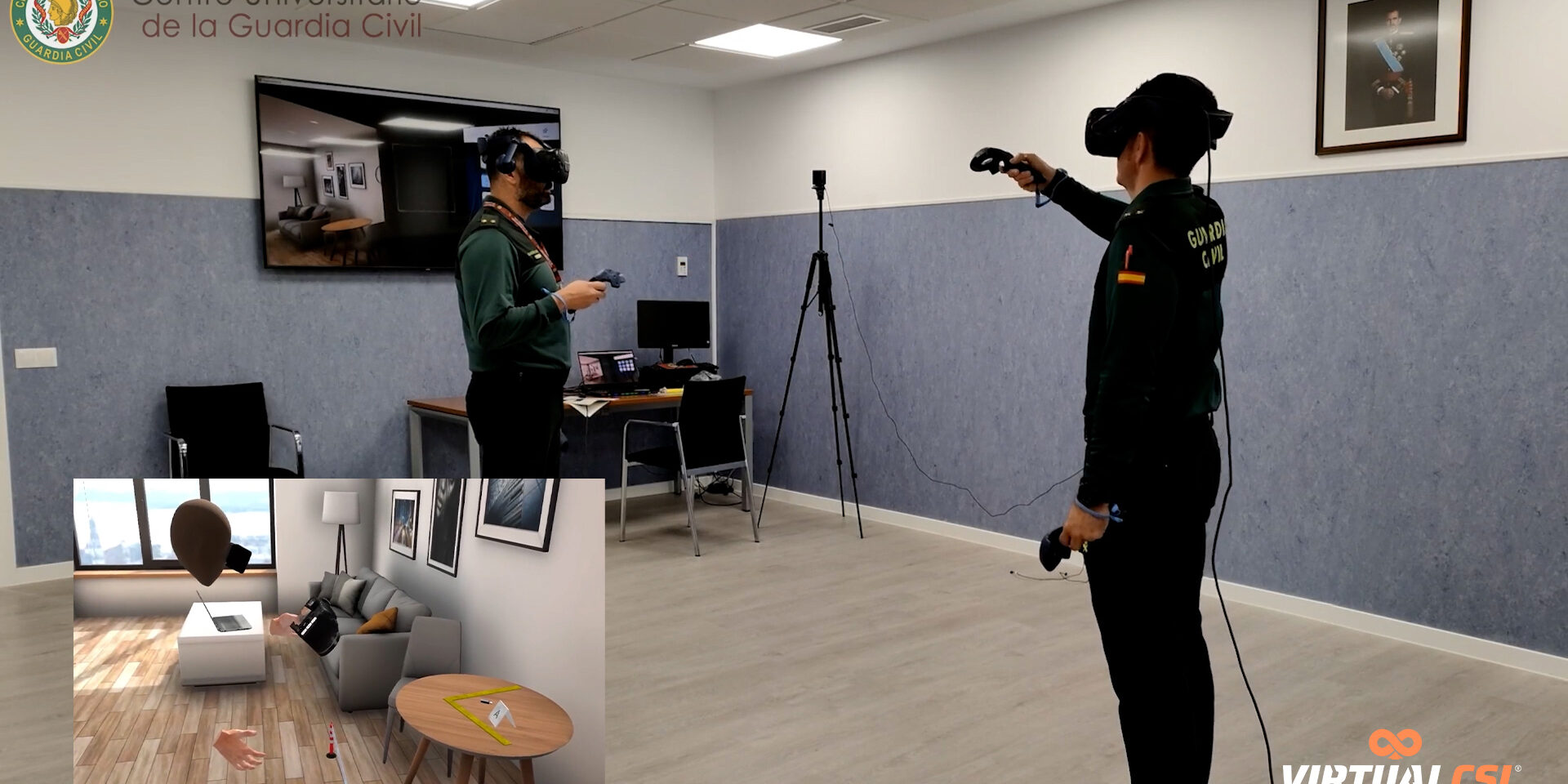The Secretary of State for Security presented the Locard project and the VirtualCSI tool, developed with Seabery.
The Secretary of State for Security, Rafael Pérez, has presented the project with which the Civil Guard will access through virtual reality to the scenarios where a crime has been committed. The technological solution, developed with the Huelva-based company Seabery, is called VirtualCSI and will allow investigators and students of the corps to perform the usual technical-ocular procedures in these environments, which will be recreated digitally and in three dimensions.
La The presentation of the Locard project was held at the headquarters of the Directorate General of the Civil Guard, and Pérez was accompanied by the director general of the institution, Mercedes González, as well as numerous commanders of the corps and the executive president of Seabery, Basilio Marquínez. The event was also attended by counselors and police attachés accredited in the embassies of other countries in Spain, who have shown their interest in learning about this system, and were able to attend the live demonstration coordinated by Marta Toronjo, project manager at the technology company, who managed it together with Alejandra de Rueda (Project Manager Director).

In his speech, the Secretary of State for Security described the Locard Project as “a magnificent example of the attitude and effort of the Civil Guard to place itself, once again, at the forefront of technology, applied in this case to training on the technical ocular inspection of the crime scene, a fundamental procedural tool for criminal investigation“. Today “it is essential to have training and updating programs adapted to a rapidly changing reality, which requires us to have modern techniques and work procedures, and where the use of new technologies is an absolute priority,” added Perez.
Por su parte, For her part, the director general of the Civil Guard stressed that in the university teaching model of the force, both modern methodology and innovation are essential, and this is where the Locard Project fits in, whose objective is to digitize the scene of a crime, so that technical-ocular inspection practices can be carried out through simulation with virtual reality, allowing the extraction of evidence that facilitates the resolution of the case.
The Locard Project develops software in the framework of cooperation between the University Center of the Civil Guard (CUGC), the Criminalistics Service (Secrim) and the company Seabery, leader in the development of educational solutions based on simulation with augmented reality and virtual reality. In addition, the CUGC has previous experience with this software, since the students have had the opportunity to use it in forensic science practices. This experience has served to evaluate and improve the project, which the parties involved expect to continue until it covers all aspects of the ocular technical inspection. From now on, the Civil Guard will continue working on the Locard Project to improve the functionalities of this system, and open new lines of research for the application of this technology to other areas of the broad spectrum of specialties of the corps.
After having implemented multiplayer functions, as well as the generation of multiple scenarios, the project has aroused the interest of some of the police councils and attaché offices of the embassies of other countries in Spain, many of whose heads have attended the presentation of the project. In fact, this technology will also be applied to enhance standardization and interoperability through joint training with other agencies and services, national and foreign, through telematic means that reduce the travel of agents. The Secretary of State explained that this advance is the result of collaboration with the University, an area that “provides the necessary technical and scientific solidity, its experience in innovation and research and its spirit of reflection and criticism”, and with private initiative, which “can be an authentic and loyal partner for the development of technological initiatives and projects that enable the implementation of public policies, always aimed at providing the best services to the society to which we owe”.











